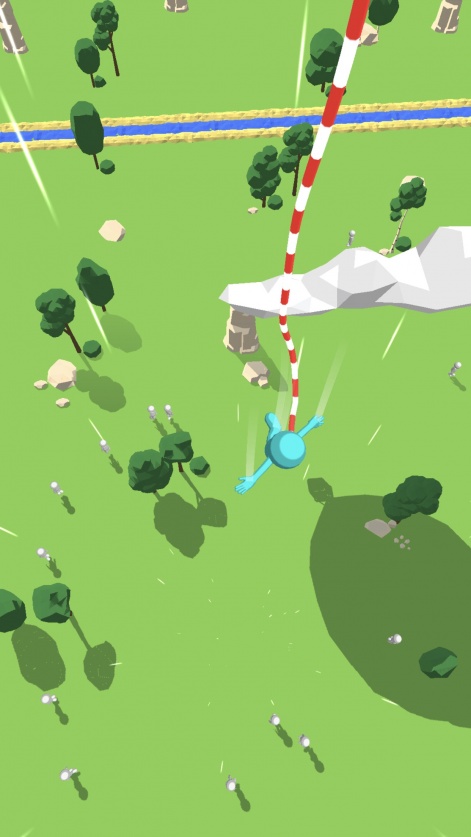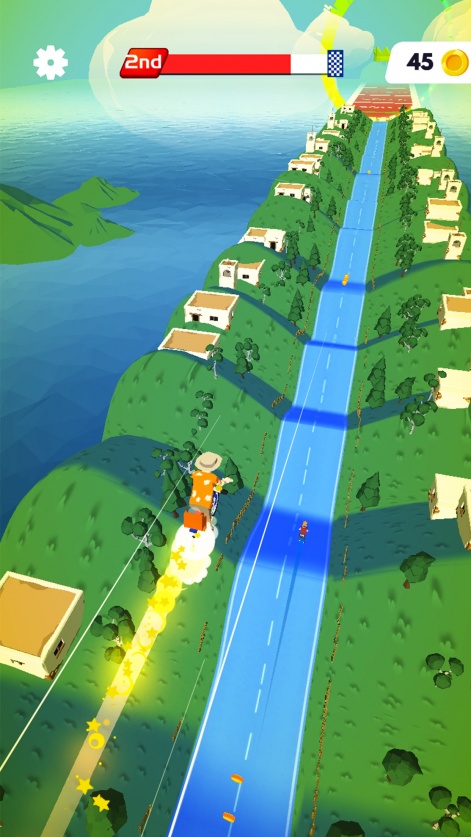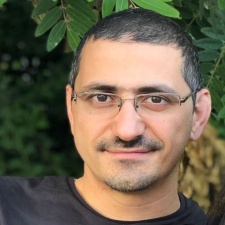There's no doubting that hyper-casual publisher Voodoo's knowledge and expertise has played a big part in its success, but if it didn't have games to publish, it wouldn't have achieved such great heights.
Following on from our chat with the publisher on its approach to game development and publishing, we spoke to some of its partner studios to find out more about the development process and what Voodoo provides to the people it works with.
This time around, we spoke to Tarboosh Games founder, CEO, and product manager Rani Hammad H. about working with Voodoo and creating successful games.
PocketGamer.biz: How did your company first get started?
Rani Hammad H.: Tarboosh Games has existed since 2015, with myself as the MD. We are an indie studio which started originally in Dubai.
We were founded with a remote team, across many different countries. We had offices in Turkey, Istanbul, Dubai, and in Jordan, hosting developers who were working in those areas.
Initially we developed and self-published our games and targeted EMEA regions - the Middle East and Turkey mostly. We were very successful in these markets, with our games being featured and highly recognized locally.
However, for us this wasn't enough, and it didn't turn out to be a lucrative business, due to limitations in targeting and the inherent global appeal of our products, which we were restricting with local products. So we made the decision to target globally, and since then have released over 50 different games.

Our studio is self-funded and our approach was to focus on attracting and nurturing top-notch talent with flexible and remote work arrangements that would transcend routine office-based 9-to-5 environments, and help unleash productivity and thought streams with a less-is-more approach.
What drew you to developing hyper-casual games?
Hyper-casual games have the fastest turnaround time - they allow us to fail fast, and thus reach success faster, which is an aspect that is hard to achieve with traditional mid and hard core hames. The advantage of being able to create many games within a shorter time span is fulfilling and fun!
It took us a year and two months to nail our first hit game with Voodoo - after another three months, we have three other hit games and many more in the making.Rani Hammad H.
Creating worlds, i.e. games, and destroying them has a god-like appeal that is satisfying and addictive, much like the games we make. In a world built upon collaboration, we opted to focus on the parts we excel at the most - making games - and leave the other aspects to publishers, instead of self-publishing. Hyper-casual games were our perfect entry into this realm. And so it began!
How did your partnership with Voodoo first begin?
We started working with small sized publishers in the US and got our first game published. Apple adopted the game and featured it globally, but the publisher was not really in the business of paid user acquisition, and the game didn't have the required monetization level to support that. So the moment you stop getting featured, the interest would just die off along with revenue, which is not a sustainable model.
We then upped our game and started working with major global publishers and released two hit games, one with each. They were spending on paid user acquisition, but failed to partner with devs, as they are traditional publishers. So once the game was published, that was it.
That is when we decided to shift the focus to Voodoo. At the end of 2018, we were assigned a publishing manager and we started making prototypes using Voodoo's guidelines.
What support has Voodoo offered when it comes to developing your games?
Voodoo were very open, which is not what you normally have with other publishers. It is hard to always meet their KPIs, but when you do, the game is usually sustainable and successful.
They are very focused, and when you show you are success material, they work hard to expand the life of the game, which is unheard of in the hyper-casual genre.
They keep games going for years, whereas there are usually much shorter lifecycles. With Voodoo, we tested more than 40 games before getting our first hit game, each going through 1-5 iterations. It is the trial and error needed to get you to the top of the app charts.
It took us a year and two months to nail our first hit game with Voodoo - after another three months, we have three other hit games and many more in the making. Once we learnt the process with Voodoo we knew the best way to improve our games, meaning our chances to make multiple hit games has grown massively.

We have worked very hard to make the games satisfying, so the user enjoys the results, but there is a lot of work behind that flavour. It is the small things that we embed into our games that make a massive difference.
For example, Bikes Hill was a game of riding a bike on hills and you can get higher each time you go up a hill, so there was a strong reward cycle, until the player breaches the sky. Once they reach that moment of satisfaction they seek it again, and that is key in Voodoo's games. The only way people stop playing is to delete the game!
How has Voodoo helped grow your business overall?
Voodoo has a high standard, but that is to ensure they honour their commitment to their developers. They aren't targeting gamers, they are targeting the general population of the world.
Voodoo has amazing tools that allow them to gather and share so much data. This gives the devs so much experience to allow us to steer our games in the right direction. Without it would be very hard to work out where they need improvements.
We are now one of Voodoo's top ten studios globally. Considering we're an indie studio with home-grown talent, this is a big achievement.Rani Hammad H.
The engagement average for Bikes Hill is around 12 minutes a day, going up to 20 minutes per day with ads. Massive for hyper-casual. Retention is in the range of 35% D1-11% D7.
We are now one of Voodoo's top ten studios globally. Considering we're an indie studio with home-grown talent, this is a big achievement.
What do you think is the key to making a successful hyper casual game?
Offering a satisfying experience, that has mass appeal across all mobile user segments, enveloped in a new form factor with non-linear control mechanic, that is intuitive, and yet simple enough for a five-year-old to understand, is a guaranteed recipe for a successful hyper casual game.
How important is testing to ensuring your game will be a success?
Testing is your only glimpse into the user's reception of the game; analyzing play time, retention and cost per install (CPI) is the cornerstone of an efficient and effective iteration process, where you gradually tweak, balance, alter different aspects of the game and assess the impact on the above aspects.
It would take a couple, sometimes up to five iterations, to exhaust the game idea and decide to invest more time in it or to move on.
What are your goals as a developer for the next 12 months?
Scaling the core team while continuing to explore new ideas and experiences to create trends. Building on the successes that we had and learning from our failures to further expand our product line.
Furthermore, the hyper-casual games market is still full of uncharted territories. We are keen on exploring more and utilizing analytics, AI, and machine learning in our ideation and creation processes, as well as with our hit games, to understand user behaviors further and optimise our offering.
Continuous delivery and continuous integration is in the pipeline as we aim to become a lean mean game-making machine.


















